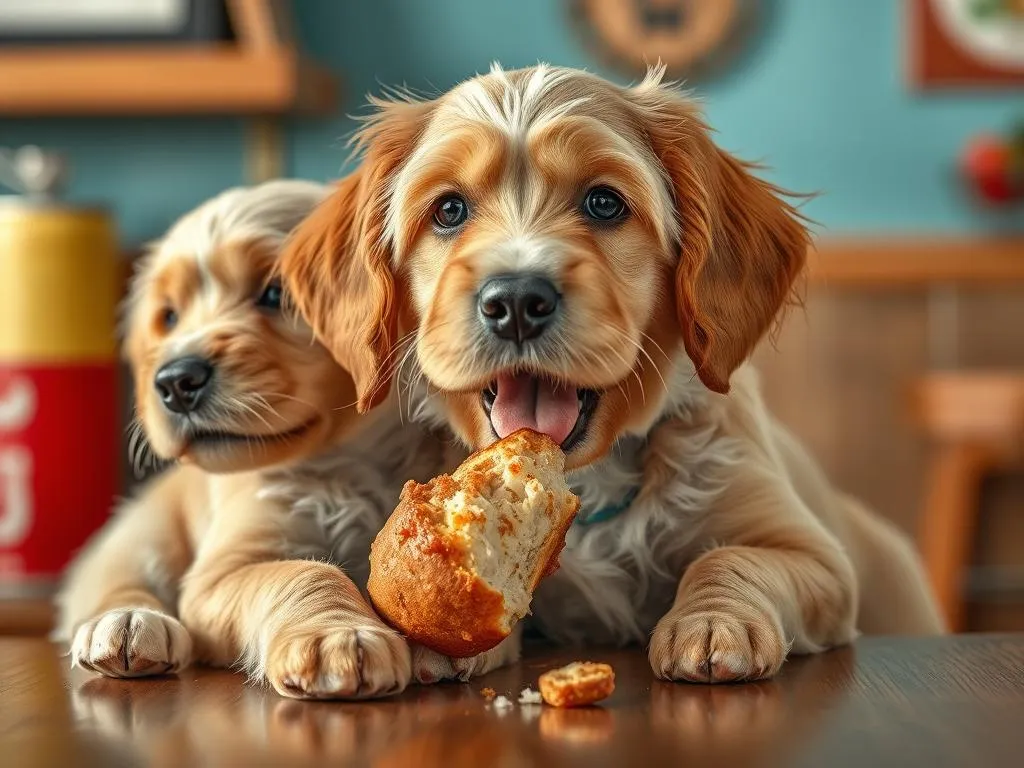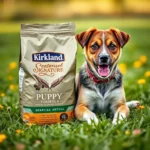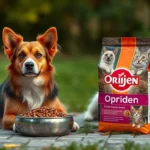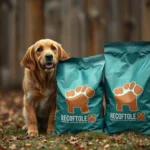
Dog nutrition is an essential aspect of responsible pet ownership. Understanding what foods are safe and beneficial for dogs can significantly impact their health and well-being. As humans, we often share our meals with our furry friends, but not all human foods are suitable for dogs. One such food item that raises a question is hush puppies—a popular Southern delicacy made from cornmeal and deep-fried until crispy. Let’s delve into the nutritional needs of dogs, the safety of feeding them human food, and specifically, whether dogs can eat hush puppies.
Understanding Dog Nutrition
Nutritional Needs of Dogs
Dogs require a balanced diet that consists of essential nutrients to thrive. These include:
- Proteins: Crucial for growth, muscle development, and overall health. Proteins are made up of amino acids, which are vital for various body functions.
- Fats: Provide a concentrated source of energy and are important for healthy skin and coat. Omega-3 and omega-6 fatty acids are particularly beneficial.
- Carbohydrates: While not essential, carbohydrates can be a good energy source. They also provide fiber, which aids in digestion.
- Vitamins and Minerals: Essential for metabolic processes, vitamins and minerals support everything from bone health to immune function.
It’s vital to provide a balanced diet tailored to your dog’s life stage—puppy, adult, or senior—as their nutritional requirements evolve over time. Puppies need higher protein levels for growth, while seniors may require fewer calories to maintain a healthy weight.
Common Dietary Requirements
Different dog breeds may have specific nutritional needs. For example, large breeds may require a diet that supports joint health, while smaller breeds may need more calorie-dense foods. Additionally, dogs with health issues like allergies, diabetes, or obesity require tailored diets to manage their conditions effectively.
Human Foods and Dogs
Overview of Safe vs. Unsafe Foods
Not all human foods are safe for dogs. It’s important to know which foods are safe and which can be harmful. Safe human foods include:
- Lean meats (cooked chicken, turkey, beef)
- Certain fruits (apples, blueberries, bananas)
- Vegetables (carrots, green beans, sweet potatoes)
Conversely, some human foods are toxic to dogs, including:
- Chocolate
- Grapes and raisins
- Onions and garlic
- Avocados
Benefits and Risks of Feeding Dogs Human Food
Feeding dogs human food can have both benefits and risks. On the positive side, sharing food can enhance the bond between you and your dog, and it can provide variety in their diet. However, there are risks involved, such as potential toxicity, obesity, and digestive issues. Human food is often richer in fats and sugars than a dog’s natural diet, which can lead to health problems if not managed carefully.
Hush Puppies: What Are They?
Ingredients and Preparation
Hush puppies are typically made from cornmeal, flour, eggs, and milk, mixed with seasonings and often diced onions. The mixture is then deep-fried until golden brown. Variations may include added ingredients like cheese, jalapeños, or spices, which can enhance flavor but also introduce potential risks for dogs.
Nutritional Profile of Hush Puppies
The nutritional profile of hush puppies is relatively high in calories and fats due to the frying process. A typical serving can contain:
- Calories: Approximately 200-300 calories per serving
- Total Fat: Around 10-15 grams
- Carbohydrates: Approximately 30-40 grams
While hush puppies may be tasty for humans, they often contain ingredients that can be harmful to dogs. For example, onions are frequently used in hush puppies and are known to be toxic to dogs, potentially causing anemia.
Can Dogs Eat Hush Puppies?
Assessing Safety for Dogs
The safety of hush puppies for dogs primarily hinges on their ingredients. The key components include cornmeal, flour, eggs, and onions. While cornmeal and flour are not toxic to dogs, the presence of onions makes hush puppies a poor choice for canine consumption.
Onions contain compounds that can lead to oxidative damage in dogs’ red blood cells, resulting in hemolytic anemia. Symptoms of onion toxicity may include lethargy, weakness, reduced appetite, and gastrointestinal upset.
Potential Health Risks
Feeding dogs hush puppies can pose several health risks:
- Short-term Effects: Dogs may experience digestive upset, including vomiting and diarrhea, after consuming hush puppies. Lethargy can also occur if they react poorly to the ingredients.
- Long-term Risks: Consistently feeding hush puppies or similar human foods can lead to obesity, pancreatitis, and other health issues due to their high fat and calorie content.
Alternative Treats for Dogs
Instead of hush puppies, consider offering your dog healthier, dog-friendly alternatives. Here are some suggestions:
- Sweet Potato Chews: Dehydrated sweet potatoes are nutritious and packed with vitamins.
- Carrot Sticks: Crunchy and low in calories, carrots are a great treat for dogs.
- Homemade Dog Treats: You can make simple treats using dog-safe ingredients. Here’s a quick recipe:
Peanut Butter and Pumpkin Dog Treats
Ingredients:
– 1 cup pumpkin puree
– 1/2 cup peanut butter (make sure it’s xylitol-free)
– 2 1/2 cups whole wheat flour
– 1 egg
Instructions:
1. Preheat your oven to 350°F (175°C).
2. Mix pumpkin puree, peanut butter, and egg in a bowl.
3. Gradually add flour until dough forms. Roll out and cut into shapes.
4. Bake for 20-25 minutes until golden brown. Let cool before serving.
These treats are not only safe but also nutritious for your furry friend.
Conclusion
Understanding dog nutrition is crucial for ensuring the health and happiness of your pet. While it’s tempting to share our favorite foods, it’s important to be cautious about what we offer to our dogs. In the case of hush puppies, the risks associated with harmful ingredients like onions outweigh any potential enjoyment they may get from this human food.
Always consult with a veterinarian regarding any dietary changes or concerns. They can provide tailored advice based on your dog’s individual needs, helping you make informed decisions about their nutrition.
Sharing human food with dogs can be rewarding, but prioritizing their health is paramount. Stick to dog-friendly treats and consider homemade options that are safe and nutritious for your canine companion.









